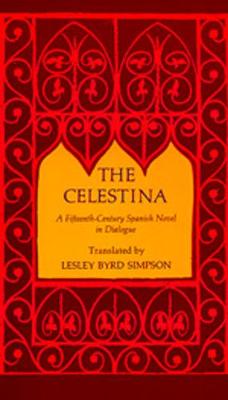The Celestina is the first European novel, a fifteenth-century Spanish masterpiece remarkable for its originality, depth, handling of dialogue, and drawing of character.
The plot is simple. A young nobleman enlists the services of Celestina, an old bawd, to help him seduce a girl; the seduction ends in tragedy. It is not, however, the love story that is important. It is Celestina who dominates the scene.
She is a frank and lusty old pagan of the Renaissance, brimming over with classical lore and a salty wisdom gained in the course of a vigorous and sinful life, which she still loves with a wonderful heartiness. Her greatest regret, indeed, is that in her remote youth she neglected some few opportunities to enjoy herself. In her old age her pleasure is in purveying pleasures to others. She is one of the great creations of all literature and has a secure place beside her two compatriots, Don Quixote and Sancho Panza.
This Spanish classic, the greatest of the forebears of Cervantes, was originally published anonymously, in 1499; later editions bear the name of Fernando de Rojas as author, in acrostics.
Readers familiar with Lesley Byrd Simpson's translations of Two Novels of Mexico by Manuel Azuela, The Poem of the Cid, and Little Sermons on Sin: The Archpriest of Talavera will not be surprised that he has preserved the vigor and colloquial flavor of the original.
Notes on the edition, from the translator's preface:
The Burgos edition of 1499 [the earliest surviving edition and the one upon which this translation was based] was published anonymously. After 1501 the name of Fernando de Rojas appears in acrostics as the author; but he, or whoever it was, "corrected" the text by interpolating long passages that mercilessly elaborate the obvious, and then, in an apparent attempt to kill the work altogether, he inserted, between the death of Calisto and its discovery by Melibea (who is standing on the other side of the wall from which he falls to his death), five new acts! These additions are not without merit, but I am convinced that the original author could hardly have been a party to the violence thus done to the austere structure of his narrative. In short, all the interpolations and additions are impertinent and obtrusive, and I have omitted them and based my translation on the primitive text. The author, or, more likely, the early publishers, slavishly imitating Classic models, thought fit to introduce each act with an "argument," which, besides being dull, strikes me as an unnecessary piece of cluttering and I have omitted it.
- ISBN10 0520011775
- ISBN13 9780520011779
- Publish Date 1 December 1958
- Publish Status Out of Print
- Out of Print 12 December 2007
- Publish Country US
- Imprint University of California Press
- Format Paperback (US Trade)
- Pages 162
- Language English
